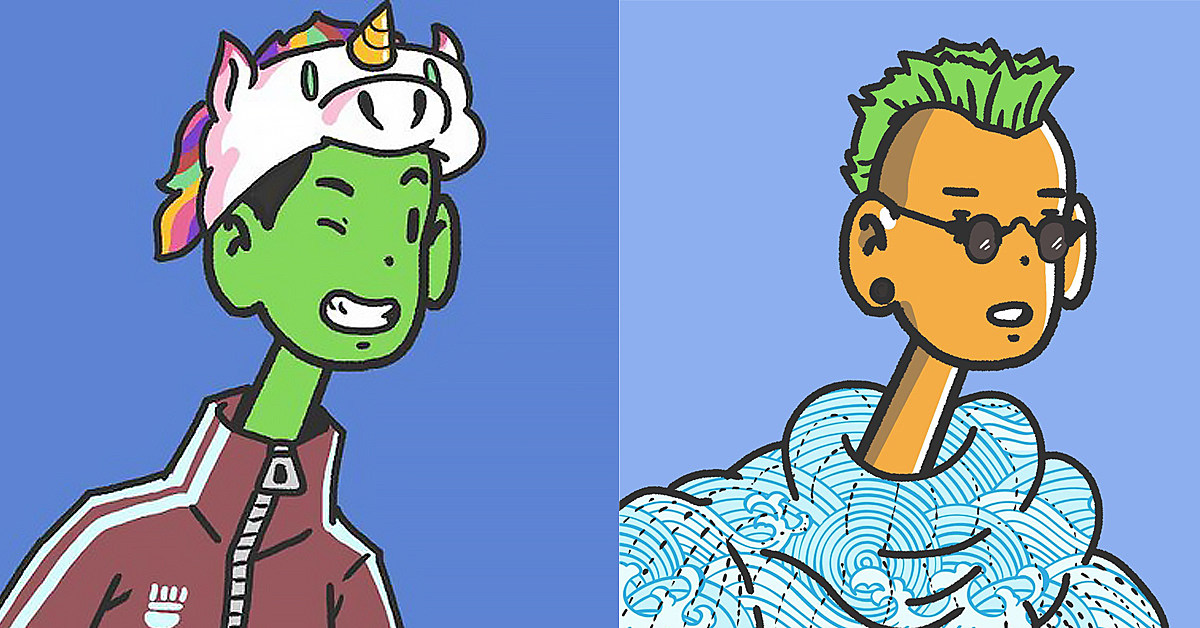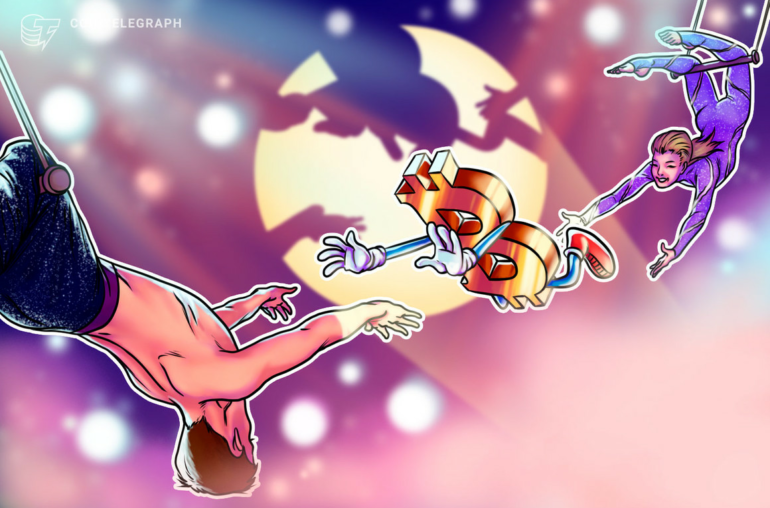Can NFTs make you rich? Yes and no. Yes, you can lose a lot of money, and yes you can gain a lot of friends as you blaze through terrible artwork on OpenSea or Magic Eden or spend late nights on Twitter Spaces, listening about the latest projects that went to the moon. I’ll spare you the NFT trading jargon and get straight to the point: There’s no such thing as get rich quick in the NFT space. What I can show you is the journey of SoundCloud rappers, who used to post flyers of their next show at the local record store, who are now making quirky 3D visualizations that look like the Windows 98 opening scene or posting memes to get the NFT community rolling on the floor laughing. I admit we all have a little Warren Buffett in us.
One of the best explanations I learned from the clubhouse about music NFTs was this: If you started a band and only had 100 band T-shirts, when you create an NFT of that shirt, you could not celebrate giving something to your community with every tour drop. The very rare NFTs would belong to the people who owned the merch, and as time goes on, you can create different virtual gifts for different tour stops. The community enjoys a show and a way to show off their experience online.
Read more: How Scab Shop and Deadfellaz are bringing tattoo culture into the metaverse
Collecting is about our social DNA, whether it’s shoes or beating levels in a game. Everyone collects experiences, and now the blockchain has a way for artists and audiences to create an online community to extend the one-time interaction. Sure, this may sound like a glorified mail list, yet hear me out: If I take a photo of your car, that doesn’t mean I own it, right? I would need the deed to the car to be able to own the car and sell it. It’s the same with digital experiences; the fact that something occurs online doesn’t make it less valuable. Artists have struggled for years, digitally releasing music or 3D artists spending weeks on a creation to post it and be inactive while creating the next piece.
There are many great artists creating music NFTs. It took me a year before buying my first NFT. It’s OK to be unsure of this space and not knowing where to start as a founder. I think the best introduction to Web3 is by supporting projects you like or meeting founders who are applying new ways to solve problems in the music industry and engage with fans. I met GRL and Ren in the Loser Club NFT community. They introduced me to so many great artists through PRISM, the gallery they curated for NFT.NYC. Here’s how they got started with Web3, the importance of Black and queer spaces in the metaverse and their experience starting a business focused on music and blockchain technology.
How did you learn about Web3?
I learned through a music artist friend — we follow each other on Twitter. We have a lot of the same friends. I saw him posting on Twitter like, “I’m performing in the metaverse and with the rocky unicorns!” I was like, “Oh, what is the metaverse?” I had no idea. I’d never heard that word ever. I saw pictures of him performing there, and there were little avatar people dancing around at this virtual concert. I asked him, “What is this?” He was pretty deep into the NFT rabbit hole, and he had landed in the Sandbox. I had no idea what Sandbox was. That was my intro and becoming super curious about this metaverse space.
That’s interesting! That’s the power of Twitter, seeing what other people are up to and asking questions. Next thing you know, you’re being onboarded into the metaverse. What advice would you give to somebody who’s into music and wants to learn about NFTs?
If you’re interested in making an album as an NFT, really try to understand the technology. Learn how everything actually works, like the smart contracts and the blockchain. Learn before you start doing anything. I think there’s so much that you can do with NFTs and with the blockchain that is way beyond just dropping music. I think that you can drop music anywhere, yet there are new tools you can use for dropping your stuff. I wish I would have known this when I started.
You make a great point. Start by learning the tech, the smart contracts and overall what the blockchain helps us all advance what full ownership of your creative talent could look like. We now have platforms such as Audius, Sound.xyz and Zora that are doing a great job, teaching artists about music and technology. What’s a project that you’re proud of, and what have you started to accomplish in the NFT space so far?
I like building a community. I’m helping people get into this space. I started PRISM with my co-founder Ren. I randomly met Ren through the Loser Club [NFT]. We’re both nonbinary and Black. It’s nice having someone who can relate to you. We both saw the same problem in the space, and we had an idea to curate a gallery. We wanted to showcase our community that identify as BIPOC, queer, trans and help get some people’s work collected. NFT.NYC is the perfect place to make it happen.
We started from scratch, off good vibes from a community, wanting to make galleries exist featuring talent we have not seen get curated. I hope that this in turn grows the community and helps artists feel like they belong. Already everyone in PRISM has been very supportive, clear on the need of more diverse visibility in the NFT space, and overall, it’s becoming a diverse group of people all believing in one idea about starting a gallery.
I’m sure you had a lot of examples of communities and gallery inspiration for starting PRISM. What does supporting your efforts to start a business and build community look like? How could someone get involved with bringing more diversity into the Web3 space?
I think that building and sharing your network really helps. If you can make an intro, help revise someone’s pitch deck or even point a founder toward resources they could use for funding, that could help. I think understanding funding and partnerships makes a big difference in how you can position your brand. If you are able to invest in someone in either time or money, that helps. Simply asking how you can support will lead to all kinds of ideas and solving ways to help people.
DISCLAIMER: THIS IS NOT FINANCIAL ADVICE. Please do your own research and consult with professionals when making any investments.
This story appeared in issue #407, available below.


